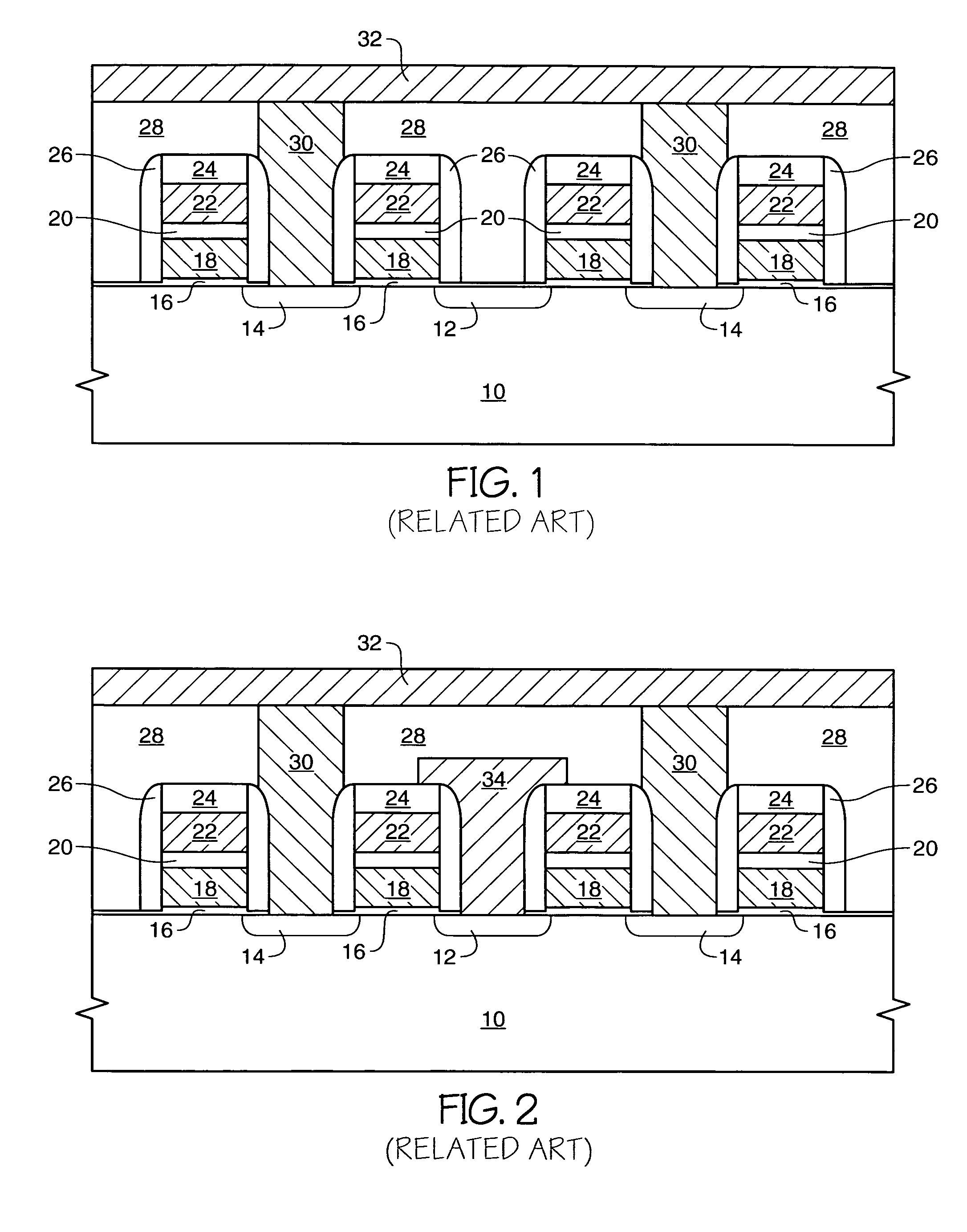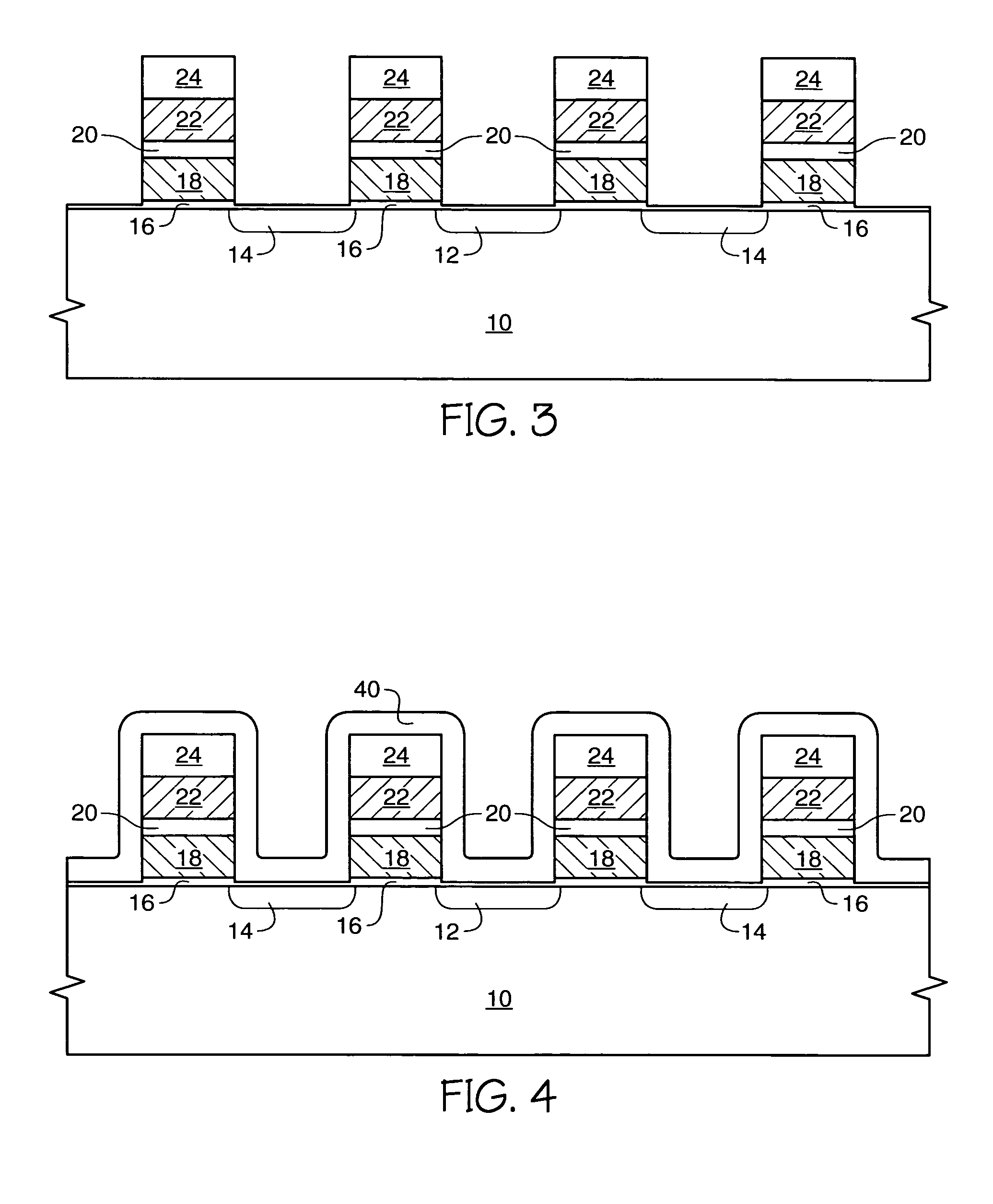Method and apparatus for a flash memory device comprising a source local interconnect
a source local interconnect and flash memory technology, applied in the direction of semiconductor devices, electrical apparatus, transistors, etc., can solve the problems of increasing the electrical resistance of the source diffusion region beyond a desirable level, and increasing the resistance of the device. , to achieve the effect of reducing the spacing and more scaleable devices
- Summary
- Abstract
- Description
- Claims
- Application Information
AI Technical Summary
Benefits of technology
Problems solved by technology
Method used
Image
Examples
first embodiment
[0023]an inventive method for providing a flash memory device comprising a source local interconnect is depicted in FIGS. 3–12. The structure of FIG. 3, or a similar structure, is formed to comprise the following: a semiconductor wafer 10, implanted transistor source 12 and drain 14 diffusion regions, gate oxide 16, floating gates 18, capacitor dielectric 20, control gates 22, and a capping layer 24, for example comprising silicon nitride (Si3N4). While four transistor stacks comprising layers 16–24 are depicted, it is conventional that a transistor array comprising several million transistors will be located over the surface of wafer 10.
[0024]The source regions 12 can comprise an arsenic-doped or phosphorous-doped well implanted in the wafer to an implant level of between about 1E13 to about 1E15 atoms / cm2. This is different from conventional flash devices which have a source implant level of greater than 1E15 up to about 1E16 atoms / cm2. The lighter doping concentration of the inve...
second embodiment
[0035]the inventive method is depicted in FIGS. 13–16. FIG. 13 depicts the following device structures: a semiconductor wafer 10, implanted transistor source 12 and drain 14 diffusion regions, gate oxide 16, a floating gate 18, capacitor dielectric 20, a control gate 22, and a capping layer 24, for example comprising silicon nitride (Si3N4). The source regions 12 can comprise an arsenic-doped or phosphorous-doped well implanted in the wafer to an implant dose of between about 1E13 to about 1E15 atoms / cm2. As stated in reference to the prior embodiment, this is different from conventional flash devices which have a source implant level of greater than 1E15 up to about 1E16 atoms / cm2. The lighter implant dose of the inventive source region allows the distance between flash cell source and drain to be decreased. This decrease in spacing between the source and drain allowed by this embodiment of the present invention results, in part, from the reduction of the number of implanted atoms ...
PUM
 Login to View More
Login to View More Abstract
Description
Claims
Application Information
 Login to View More
Login to View More - R&D
- Intellectual Property
- Life Sciences
- Materials
- Tech Scout
- Unparalleled Data Quality
- Higher Quality Content
- 60% Fewer Hallucinations
Browse by: Latest US Patents, China's latest patents, Technical Efficacy Thesaurus, Application Domain, Technology Topic, Popular Technical Reports.
© 2025 PatSnap. All rights reserved.Legal|Privacy policy|Modern Slavery Act Transparency Statement|Sitemap|About US| Contact US: help@patsnap.com



